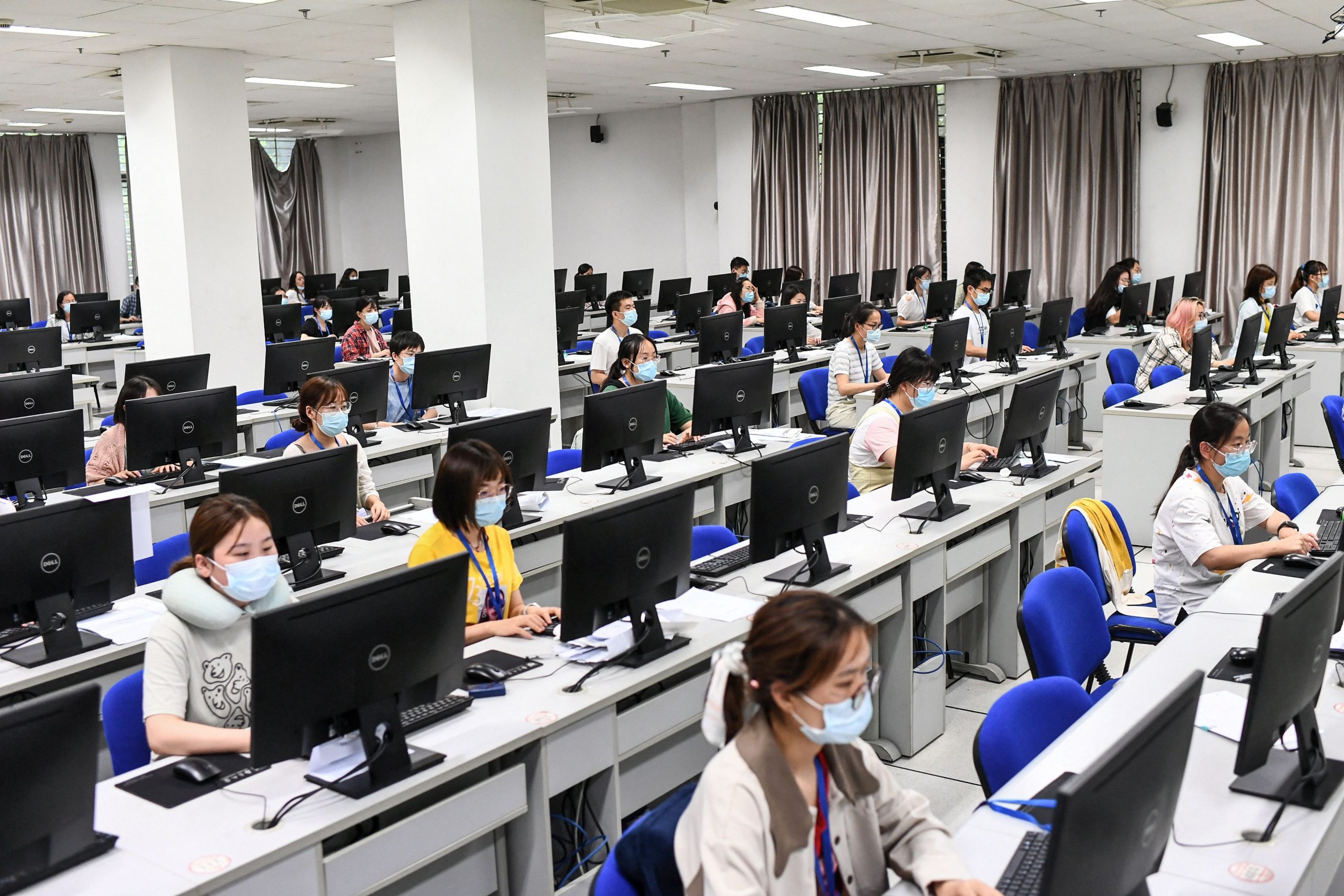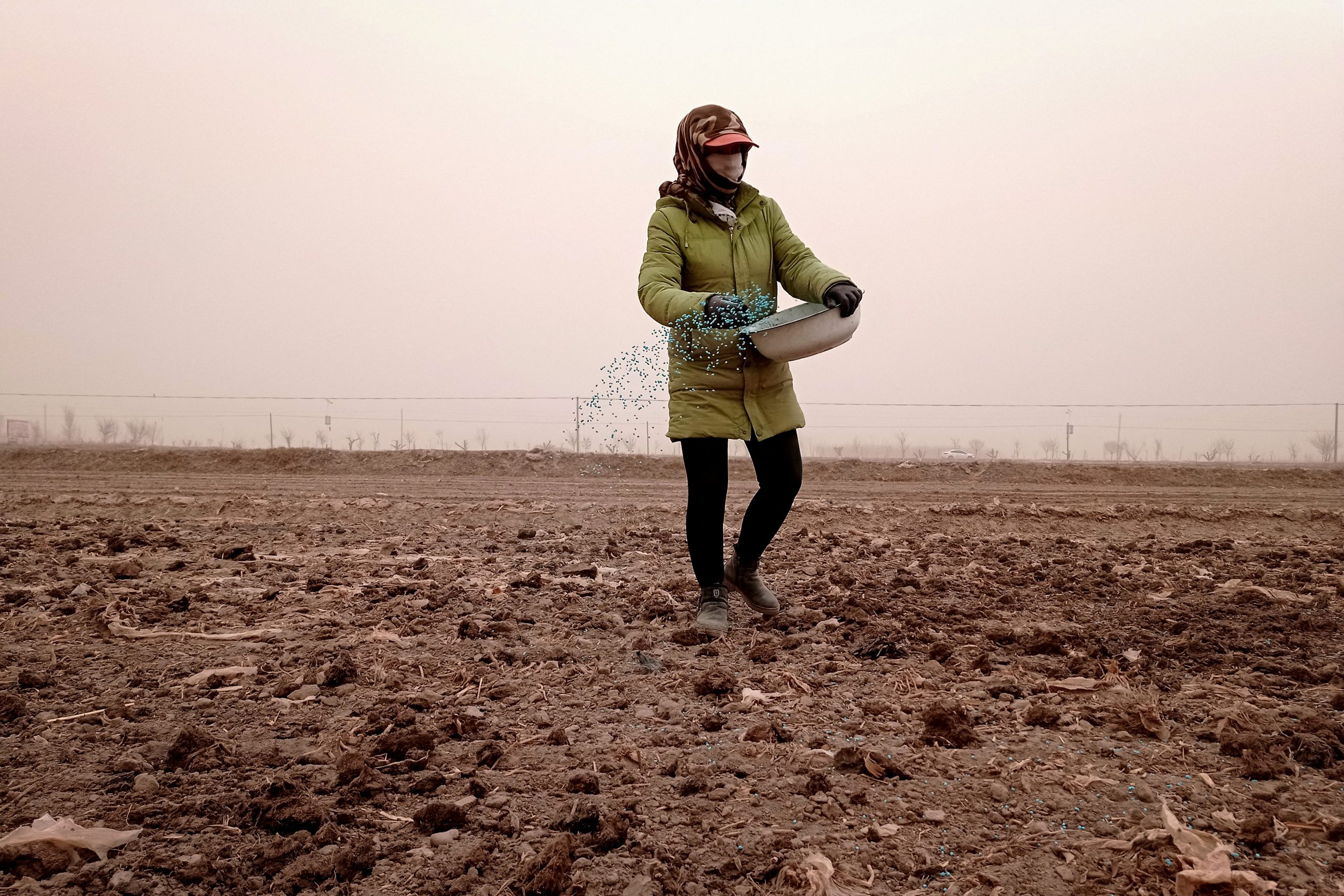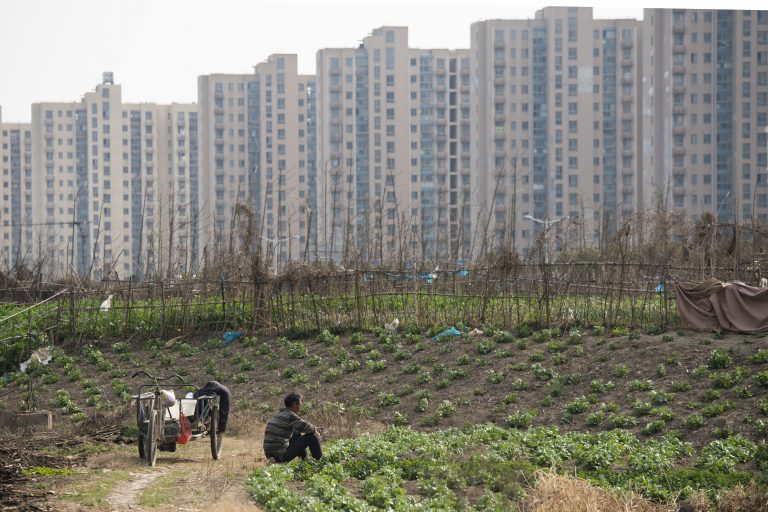The Chinese Communist Party (CCP) celebrated its centennial in July with a parade in Tiananmen Square and paeans to the Party’s prowess. The celebratory mood, however, did not quite cover the glint of trouble that came with the announcement of China’s second quarter economic figures.
On July 14, the Chinese authorities reported 7.9 percent growth from April to June. When benchmarked with most forecasts, which anticipated over 8 percent growth, the Chinese economy seemed to have performed acceptably. However, the pace of growth slowed dramatically from the 18.3 percent of the first three months of 2021, with quarter-to-quarter growth of just 1.3 percent.
The lethargic growth pace indicates that the People’s Republic of China (PRC) is struggling with the global pandemic economy and deteriorating domestic conditions. Economic weakness was indirectly affirmed when the People’s Bank of China unveiled a surprise reserve ratio requirement (RRR) cut a day after the release of second quarter economic data.
Clearing up ‘illegal’ pay as food shortages loom
The CCP does not only have the economy to be concerned about. In recent weeks, signs of government fiscal shortages and food supply issues have been bubbling to the surface.
Early in June, the PRC central government urged local governments to take additional and stricter measures to “clear up illegal civil servant pay and subsidies.” Pictures of local government documents on the matter that were circulated on social media suggested that the central government’s order was of a high priority. For instance, the Nanchang Water Conservancy Bureau issued a “red-letter head” notice — the red ink indicating a more urgent directive as compared to notices printed in black ink — withdrawing government incentives for civil servants.
Success
You are now signed up for our newsletter
Success
Check your email to complete sign up
In compliance with the central government order, local governments started forcing civil servants this month to unconditionally return all bonuses and subsidies issued this month.
The move is a blow to civil servants. Bonuses and subsidies make up a substantial sum of their total annual remuneration.
Disgruntled government workers took to social media to air and vent their grievances. Those from southern cities in Guangdong Province noted that they had been notified of bonus and subsidy suspension as early as July 3.

When complaining on social media about the local government’s recent request for teachers in Dexing City, Jiangxi Province, to return their “high-quality bonuses,” civil servants revealed that performance bonuses for teachers in the first quarter of 2021 was 20,000 yuan (about $3,092). In other words, teachers in Dexing would make at least 80,000 yuan less in quarterly bonuses in 2021, an unwelcome prospect in tough economic times.
In Shanghai, the municipal government had reportedly stopped handing out bonuses for the entire first quarter of the year. Civil servants from Shenzhen said some work units have been tabulating employee income for recent years — a sign that preparations are being made not just to cut remunerations, but to extract previous payment from government employees.
Risks of smashing the ‘iron rice bowl’
Cutting civil servant remuneration is not a small matter for the CCP. The Party is well aware that civil servants, who are assured an “iron rice bowl” working for the government, form the backbone of its supporters in the regime.
The CCP’s constant search for mass support and regime security means that efforts by Beijing to trim the civil service usually amount to nothing. In practice, Beijing often ends up creating even more government offices and departments, further increasing pressure on state coffers.

The case of Foping County in Shaanxi Province is illustrative. With a small population of 30,000, the county has a whooping 2,194 civil servants, or an official-to-civilian ratio twice the national average. Offices of 13 government departments throng either side of a 1-kilometer stretch of road in the backwater country. Foping County even has a Maritime Safety Administration despite being situated in landlocked Shaanxi. Finally, the county government took in tens of millions of yuan in fiscal revenue each year over the past three years, but averaged nearly 790 million yuan in fiscal expenditure each year over the same period. The bulk of the county’s fiscal expenditure consisted of wages for civil servants.
Beijing is well aware that supporting a bloated civil service will lead to ruin for the regime, especially when the economy is weak and underperforming. That civil servants are receiving serious pay cuts hint at the scale of government fiscal shortages. Slashing civil servant bonuses and subsidies will help alleviate government fiscal shortages in the short term, but puts the CCP at risk of alienating a core group of supporters when crises are mounting for the PRC.
Meanwhile, the CCP anti-corruption campaign began targeting senior officials in the regime’s food apparatus around the middle of the month. On July 12, Ni Meitang, a first-rank inspector with the Department of Agriculture and Rural Affairs, was investigated. The following day, two former officials — former National Food and Strategic Reserves Administration deputy director Xu Ming and Shi Zhonghua, the former chairman of the state-owned Beidahuang Grain Group — were probed.
As in the case of civil servant pay cuts, the probes into the senior food apparatus officials obliquely reveal problems that the CCP will never publicly admit. Officials at the deputy bureau level and higher have scarcely been touched by Xi Jinping’s anti-corruption campaign since it was launched after the 18th Party Congress in 2012. Part of the reason why the food apparatus appeared to escape scrutiny until recently is its relative unimportance as a lever of power, unlike the military or the political and legal affairs apparatus.
Another reason why the food apparatus was “untouched” for a long time is Beijing’s likely unwillingness to risk regime security by squeezing it too tightly, too soon. Local officials looking to cover up malfeasance could destroy evidence in ways that would hurt the regime, including burning granaries. That Xi is moving in on the food apparatus now, however, indicates that the risk of not rooting out corruption has exceeded the risk of doing so. Put another way, the actions or inactions of food apparatus officials are contributing to food shortages or potentially worse developments, and Beijing has no choice but to crack down now and get the situation in hand before greater crisis strikes.














